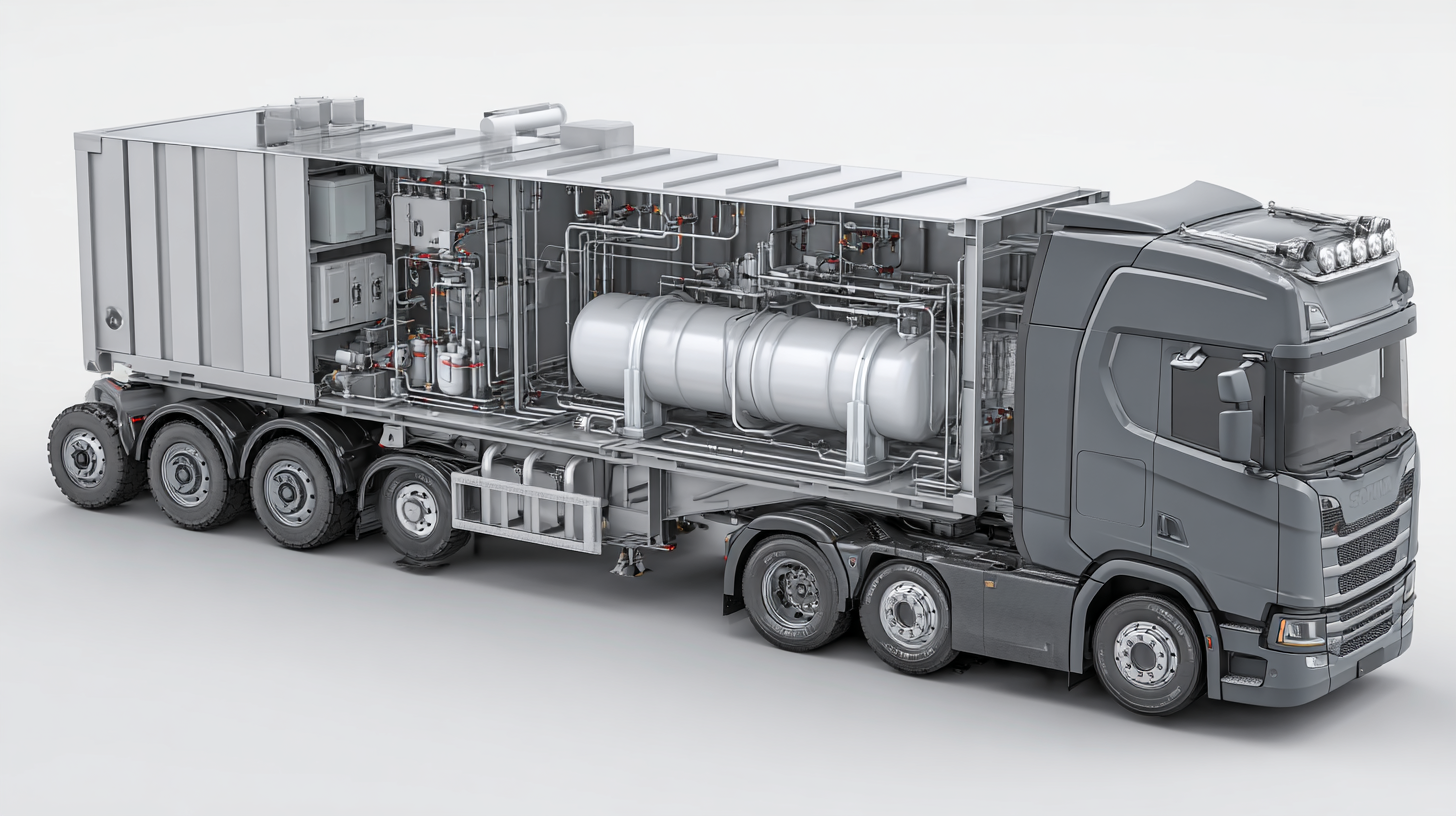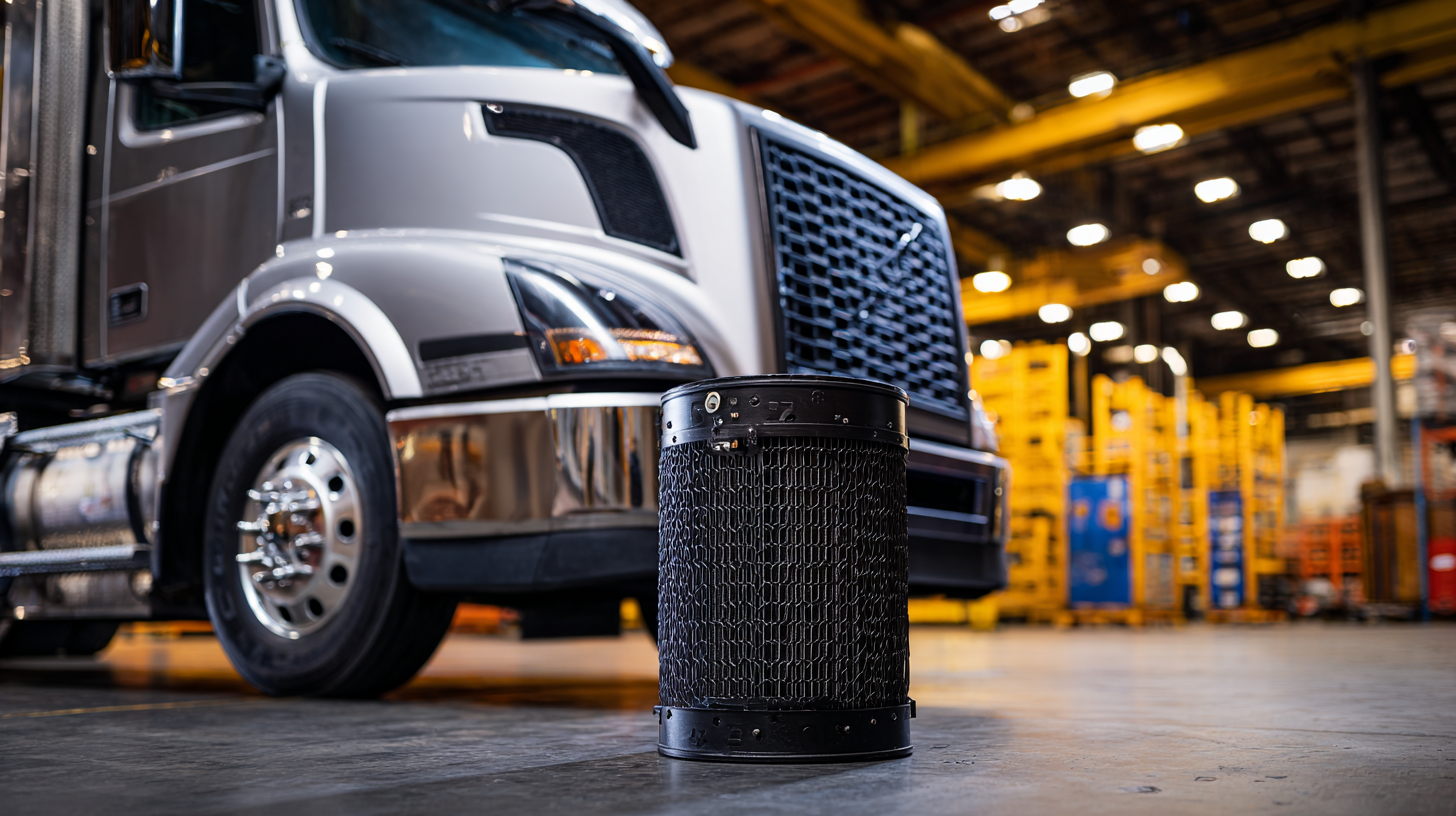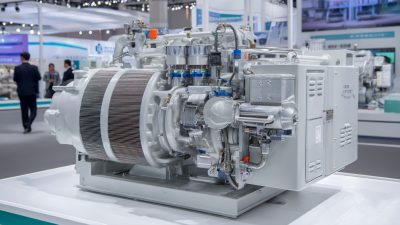In the world of trucking, the performance and longevity of your vehicle heavily rely on the quality and maintenance of its components. One critical element that often goes overlooked is the truck filter. The right truck filters ensure that engine pollutants are effectively trapped, allowing for optimal function and efficiency. With the rise of advanced filtration technologies, the market is now flooded with options, making it imperative for truck owners to make informed choices.
As we approach 2025, understanding the importance of selecting the appropriate truck filter becomes more crucial than ever. Whether it’s air filters, oil filters, or fuel filters, each type plays a vital role in safeguarding the engine's integrity and enhancing overall performance. This guide will delve deeper into the various truck filter types available, their specific benefits, and tips on how to select the best options tailored to your needs. By optimizing your truck filters, you can ensure that your vehicle not only performs better but also enjoys a longer lifespan on the road.
Join us as we explore the essential elements of truck filters and how a simple change can lead to significant improvements in efficiency and reliability, setting you on the path to a more profitable and productive trucking experience.

When it comes to maintaining your truck's performance and longevity, choosing the right filters is crucial. Truck filters, including oil, air, fuel, and cabin filters, each serve an essential role in ensuring your vehicle operates smoothly. Selecting filters that align with your specific needs can significantly improve the efficiency of your truck, ultimately affecting its overall performance and lifespan.
Consider your driving conditions and usage when selecting filters. For example, if you frequently navigate dusty roads or harsh environments, a high-efficiency air filter can enhance engine performance by keeping contaminants at bay. Additionally, if your truck is often used for heavy towing, a specialized fuel filter designed to handle increased demands may be necessary. Assessing factors such as climate, load capacity, and average driving distance will help you make informed decisions, allowing your truck to maintain optimal efficiency and reliability over time.

When considering the performance and longevity of trucks, understanding the different types of filters is crucial. Truck filters serve essential functions, ensuring that various systems operate efficiently and cleanly. The primary types include engine air filters, oil filters, and cabin filters, each playing a significant role. Engine air filters prevent dirt and debris from entering the engine, promoting better combustion and longer engine life. Oil filters remove contaminants from the engine oil, essential for protecting engine parts and maintaining optimal performance. Cabin filters, on the other hand, enhance passenger comfort by filtering out pollen, dust, and other pollutants from the air inside the vehicle.
Tips for Maintaining Truck Filters:
To ensure peak performance, regularly check and replace your engine air and oil filters according to the manufacturer's recommendations. This helps prevent issues that could lead to costly repairs or reduced efficiency. For cabin filters, consider a seasonal change, especially before summer, to keep the air you breathe clean and fresh. Investing in quality OEM filters can also improve filtration efficiency, contributing to the overall longevity of your truck. Understanding these components is key to effective truck maintenance and improved driving experience.
Changing and maintaining truck filters is essential for optimal vehicle performance and longevity. Regularly inspecting and replacing air, oil, and fuel filters can significantly improve the efficiency of your truck’s engine. A clean air filter ensures that the engine receives the right amount of air for combustion, which enhances fuel efficiency and reduces emissions. It is advisable to check the air filter every 12,000 to 15,000 miles, or more frequently if you drive in dusty conditions.
In addition to air filters, oil filters should be changed at each oil change to keep the engine lubricated and free of contaminants. Neglecting the oil filter can lead to a buildup of dirt and particles, which may cause engine wear over time. Fuel filters are often overlooked but are crucial in maintaining fuel system integrity. Regular replacement of fuel filters, typically every 20,000 to 30,000 miles, ensures the smooth operation of your truck and protects the fuel injectors. By adhering to a proactive maintenance schedule and following the manufacturer’s recommendations, truck owners can enjoy enhanced performance and the longevity of their vehicles.
When it comes to maintaining your truck's performance, keeping an eye on filters is crucial. Filters play a vital role in ensuring that air, oil, and fuel flow smoothly through your engine. One major sign that your truck filters may need replacement is reduced engine performance. If you notice a decrease in acceleration or power, clogged filters could be restricting airflow or fluid circulation, leading to inefficient engine operation.

Another indication of filter issues is unusual engine noises. If your truck starts making strange sounds—especially a rough or sputtering engine—it may be a sign that the fuel or air filters are dirty or blocked. Additionally, pay attention to your fuel economy; a sudden drop could signal that your filters are failing to do their job. Regularly checking for visibly dirty filters or degraded materials can save you from more significant repairs down the road and ensure that your truck runs efficiently for years to come.
When it comes to enhancing the lifespan and overall performance of your truck filters, there are several practical tips to consider. Regular maintenance plays a significant role; keeping filters clean and free of debris ensures optimal airflow and fuel flow. Incorporating quality fuel injector cleaners can help maintain the efficiency of your fuel system. These cleaners not only remove deposits that can clog injectors but also help improve fuel atomization, leading to better combustion and enhanced engine performance.
In addition, routinely checking and replacing air filters is essential. A clean air filter allows the engine to breathe better, which is crucial for maintaining power and fuel efficiency. Similarly, ensuring that oil filters are in good condition can prevent contaminants from re-entering the engine, thereby prolonging its life. Utilizing service kits for regular check-ups allows truck owners to stay proactive about their vehicle’s health, ensuring that all critical components, including filters, are adequately attended to for maximum performance and longevity.
| Filter Type | Lifespan (Miles) | Maintenance Tips | Impact on Performance |
|---|---|---|---|
| Air Filter | 15,000 - 30,000 | Check and clean regularly, replace if damaged. | Improves fuel efficiency and engine performance. |
| Oil Filter | 3,000 - 7,500 | Change with every oil change for optimal performance. | Keeps engine oil clean, prolonging engine life. |
| Fuel Filter | 15,000 - 30,000 | Inspect regularly, replace if performance issues arise. | Ensures clean fuel delivery, enhancing efficiency. |
| Cabin Filter | 15,000 - 30,000 | Replace regularly to maintain air quality inside the cab. | Improves air quality, reduces allergens and odors. |






